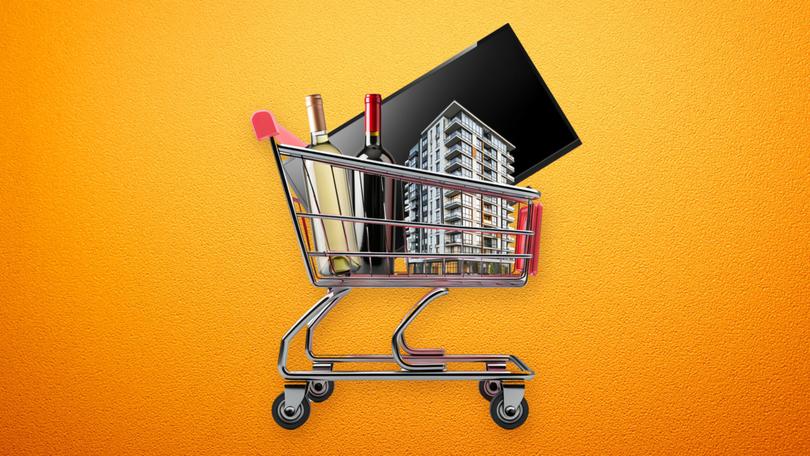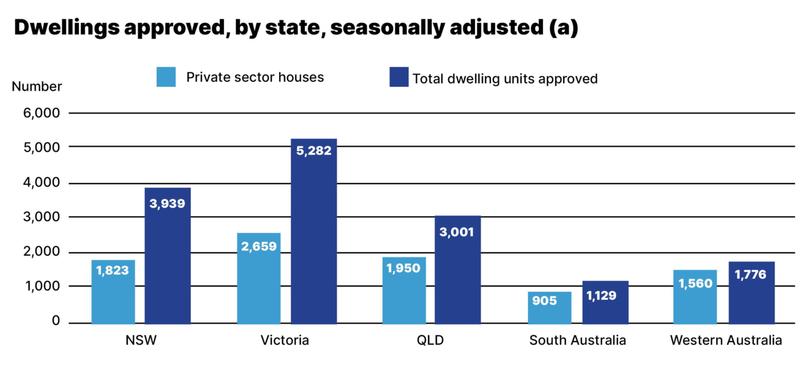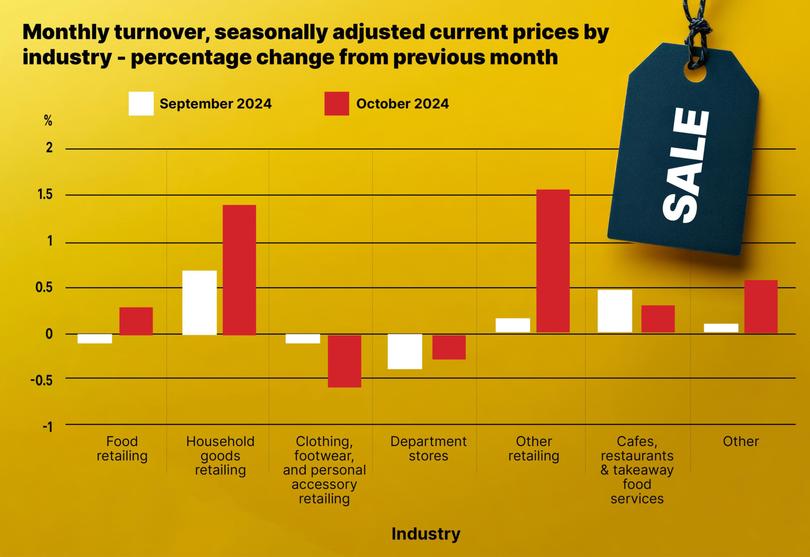JACKSON HEWETT: Black Friday sales fail to spark soggy overall economic numbers in data super soaker
JACKSON HEWETT: Business confidence is down and consumers’ wallets remain mostly closed. But government largesse is gradually filtering into public sector wages. Welcome to our patchwork economy.

A deluge of data Monday confirms the soggy state of the Australian economy.
Any green shoots will do little more than encourage the Reserve Bank to keep interest rates on hold, suggesting the country is bogged but not sinking enough for an RBA lifebuoy.
In a bumper drop before official GDP figures on Wednesday, data on retail sales, inflation, wages, business inventories and profits, and building approvals demonstrated the patchy patchwork that is our economy.
Sign up to The Nightly's newsletters.
Get the first look at the digital newspaper, curated daily stories and breaking headlines delivered to your inbox.
By continuing you agree to our Terms and Privacy Policy.Retail sales tell a story of consumers keen to spend but holding out for black Friday discounts, and ongoing preference for at-home booze and takeaway.
Building approvals have grown, but not as fast as necessary if the government is going to hit its target of 1.2 million homes over the next five years. That target equates to 240,000 new homes every year, and so far 168,000 have got the nod.
The big uptick was in new apartments with nine-storey developments in Melbourne and Sydney leading the way.
Those buildings came with a bucketload of NIMBY anger and with approvals for units are well below the last peak in 2016, generating enough supply is going to be a challenge.

What worries me is the lack of activity in the business sector.
Profitability is down and what’s worse, inventories are off too.
The biggest hit came to the mining sector, which saw profits drop nearly 9 per cent on the quarter. It’s the third drop in a row and, according to CBA, miner profits are now down 40 per cent on lower commodity prices since the peak in the second half of 2022. That’s where the budget black hole is starting to widen, and where the long term worries for the country lie. China’s economy is slowing and will probably worsen with Trump’s tariffs and it feels like an infrastructure stimulus is one of their less preferred options.
That leaves the rest of the business community to do the heavy lifting.
But consumers’ closed wallets are showing up in other business profits. Personal and other services (think hair and beauty), repair and maintenance (not hair and beauty, but equipment), profits are down 8 per cent. That means people are continuing to hold off on non-essential spending.
Similarly food services and accommodation profits are down 4.8 per cent, suggesting that life’s luxuries are also on hold.
Cumulatively, business profits are now down 17 per cent from their peak in early 2023, CBA says. The latest ABS stats show that non-farm inventories fell by almost a per cent over the quarter, which will shave a considerable chunk of Wednesday’s GDP figures. Declining inventories down means businesses have been getting rid of stock and not replacing it. That was particularly the case for hospitality – stock levels dropped 9.4 per cent over the year while in retail they fell 1.4 per cent.
The data is consistent with last week’s survey for capital expenditure which revised down investment intentions from 5 per cent to 3 per cent growth year on year.
It’s also showing up in building approvals for commercial and industrial property. It is now down by 20 per cent over the year, and likely driven by a decreased need for logistics and little demand for business expansion.
That doesn’t bode well for their expectations about the economy.
That lack of business enthusiasm is showing up in wages. Wages are still growing but have fallen back to pre-pandemic levels. After peaking at 11 per cent in 2022-3, when the Fair Work Commission put through an outsized increase to the minimum wage, pay packets are now growing at their slowest level in four years at 4 per cent.

Government spending holding up the economy
By contrast, things are much more rosy in government supported areas.
The energy transition seems to be very profitable for utility companies. While rebates are easing the pain of big rises in energy bills, they are going to the bottom line of energy companies.
‘Energy, gas, water and waste services’ bucked the trend of a 4 per cent decline in company profits jump 1.7 per cent for the quarter to be up 14 per cent for the year. At least some of that profitability is being passed on to workers. Wages for the sector are up 7.3 per cent annually.
And government largesse is filtering into other public sector wages too. Education and training wages are up 5.4 per cent, while healthcare wages are up 5 per cent.
Perhaps it is those employees who are the driving force behind the growth in retail sales last month. Add in some energy rebates and a dollop of tax cuts and retail trade delivered solid growth of 3.4 per cent for the year.
But the numbers also tell a tale of how conditioned consumers are for Black Friday sales. Retailers pulled their discounts forward into October, chasing the dollars that now make up a quarter of Christmas trading over the Black Friday period.
The big category that saw an increase in sales were home electronics which suggests that ‘Netflix and chill’ over a takeaway and a bottle of plonk seems to Australia’s great escape.
Economists expect that the data dump today won’t make too much of a difference to Governor Michele Bullock and the RBA board as they contemplate what to do with interest rates at the December meeting.
The big takeaway is the numbers are neither too hot nor too cold to trigger a rate cut. But a dose of salts is definitely needed to spice up the economy.

